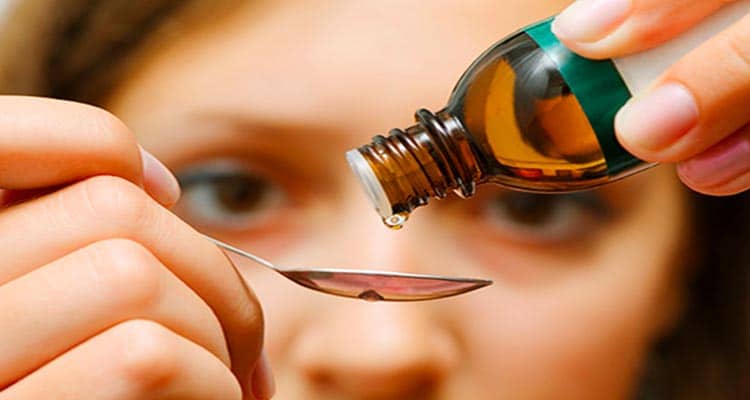You don’t have to always consult a medical practitioner to find a solution to your problem. There are some simple steps you can take at home to make intercourse more pleasurable.
What Causes Painful Intercourse?
Before delving deeper into the problem it is first essential to understand what the causes behind painful intercourse are. First and foremost, remember that there is no need to be embarrassed if you are not comfortable in bed.
Prachi Vaish, clinical psychologist and couple therapist says, “What is most important is that you should not judge or shame your partner if she experiences pain during intercourse. There is clearly something that is bothering her if she is not comfortable. Sometimes couples end up making the issue very personal which leads to problems in the relationship.” Women especially usually a bit more shy about their sexuality than men and this leads them to suffer in silence, especially those who have had a conservative or very religious upbringing. As Prachi reiterates, the three words of advice if you are suffering from pain during intercourse: Don’t be ashamed. A visit to the gynecologist is always advised but before that it is essential to understand the reasons why this is so common.
1. Inadequate lubrication
This is one of the most common causes of dyspareunia. Common among women past their menopause, lack of sexual appetite can be one of reasons why the vagina doesn’t get lubricated enough which results in pain during intercourse. Another reason is a drop in estrogen levels after menopause or childbirth or during breastfeeding.
2. Vaginismus
An involuntary contraction of muscles around the opening of the vagina which makes it difficult for the vagina to open up during intercourse, also called vaginismus, is also one of the major causes of pain during intercourse.
“The presence of pain means the absence of lubrication,” says Prachi. “When there is not enough arousal due to lack of foreplay, it results in painful intercourse.”
3. Strong medications
Certain medications can have an impact on your sexual desires. They may even cause problems in arousal which can lead to decreased lubrication resulting in painful sex. Some of these medicines are the ones prescribed for high blood pressure, depression, or certain types of birth control pills. So before you pop any pill, do ask your doctor about its side-effects.
4. Grave illnesses
Sometimes one problem can lead to another. If you are suffering from any issues like endometriosis, retroverted uterus, fibroids, irritable bowel syndrome, ovarian cysts etc, the direct result can be on your sex life. Penetration can be problematic as you will experience pain during intercourse. As a result women often start avoiding intimacy.
5. Medical surgeries
Sometimes, deep penetrations can cause unbearable pain. Especially if you have been through surgeries or serious medical treatments like radiation and chemotherapy for cancer, intercourse might be a painful affair.
Additionally, these might also cause a certain amount of psychological distress leading to reduced interest in sex and subsequently poor lubrication.
6. Emotional Reasons
The importance of emotional reasons cannot be emphasised enough. Anxiety, depression, fear of intimacy, lack of body confidence – each of these are separate issues that deserve to be acknowledged and addressed.
7. Past bad experiences
Trauma from the past can definitely affect your sexual performance. “A history of abuse or an unpleasant first encounter can create a deep fear in a woman’s mind,” says Prachi. “What happens is that during penetration, the body reacts with fear when she is trying to have sex again and the vagina literally closes up. This may lead to painful intercourse.”
Home Remedies To Reduce Pain During Intercourse
As we mentioned above, it would be ideal to identify the reasons why you go through pain during intercourse. Then you may decide whether you want to approach a doctor who may prescribe medicines or treatment. However, there are some tricks and treats that you can do from home as well. These home remedies to reduce painful intercourse might go a long way in making sex a pleasurable experience minus cramps or discomfort.
1. Avoid tight clothing
No, we aren’t asking you to discard your bandage dresses and super sexy LBDs but yeast infection (a vaginal infection) can cause discomfort. To decrease this risk, do not wear tight outfits too often. Instead, choose to wear cotton underwear especially during high summer. Maintain high hygiene – take a shower daily and change into fresh dry clothing after an intense gym or swimming session.
2. Prevent bladder infections
Bladder infections can also be a reason why some people experience pain during intercourse. Aside from keeping your vaginal area clean and dry, always wipe from front to back (vagina to anus).
Urinate before and after you have sex. Small measures maybe, but they certainly help reduce pain.
3. Keep your body moisturised
By this, we mean keep it moisturised internally. As we said before, lack of lubrication is one of the main reasons why women suffer after-sex cramps or pain while having sex. But the solution to this can be found in your kitchen! Have food rich in mono and poly unsaturated fats – meaning include olive oil, safflower oil, peanut oil and corn oil. Also, start having more natural and water-based products that help in regulating moisture content. Drink plenty of water and natural juices.
4. Practise Kegel exercises
Pelvic floor exercises or kegel exercises are a great way to improve sexual health and pleasure, especially for those who may experience pain during intercourse. Here’s a simple technique. Breathe in deeply, let your abdomen rise while keeping pelvic floor muscles relaxed. Breathe out slowly through your mouth and while doing that, focus on contracting your pelvic floor muscles. Breathe in and again release the contraction. Repeat around 10 times.
5. Improve foreplay
Ensure that your partner does not go straight for the jugular. Spend enough time on foreplay, to increase lubrication naturally. Build the mood. Play music, light candles, participate in sex games.. the more relaxed you are, the more you will be at ease and then when the real moment comes, you won’t experience any pain.
6. Work on stress levels
As mentioned above, stress and fear can result in dryness in the vagina. Prachi advises that couples should relax and not just aim for penetration and orgasm. In long-term relationship or marriages, since they know each other’s bodies so well, it might be difficult to get the same passion going. “Instead, you should just focus on enjoying the sensations and not get lost in the stress of achieving an orgasm.”
7. Communicate your needs
Open communication is perhaps one of the best home remedies for painful intercourse. Prachi says during counseling couples are often asked to go through stages of sexual experience where penetration is given the least importance. “Especially if you feel you have lost the spark in your relationship, work on getting the intimacy back,” she says.
It is important to talk to each other about their needs and you can experiment with new positions that could give you more pleasure.
8. Fall in Love, Not Lust
For external stimulation as mentioned above, you can use lubrication to make the experience more pleasurable. But intimacy, one must remember, does not begin at the bedroom. Foreplay has to happen all day, be it when you are working together or just spending time together. “Create a different kind of intimacy,” says Prachi.
Painful Intercourse: Do Men Suffer?
Whenever one talks about pain during sex, it is assumed that only women are at the receiving end. However, the same problem can afflict men too, albeit at a lesser degree. Of course, men and women are mostly wired differently in that for men, the physical aspects of sex are more important whereas for women, the emotional side is significant. Of course, every medicine you take or exercise you follow is best done after consulting with a gynaecologist or sex therapist, however the emotional aspect is something that is very much under your control. As you grow older, your sex life may not be as rocking as it was in the 20s or 30s. Perhaps a certain boredom or familiarity may set into your relationship. But it does not mean that you can’t reignite the spark. It might be a different kind of fire you need to light and you may need to put in effort to find out what kind of intimacy turns you on. But it would be the best medicine to bring back the heat in the bedroom.




